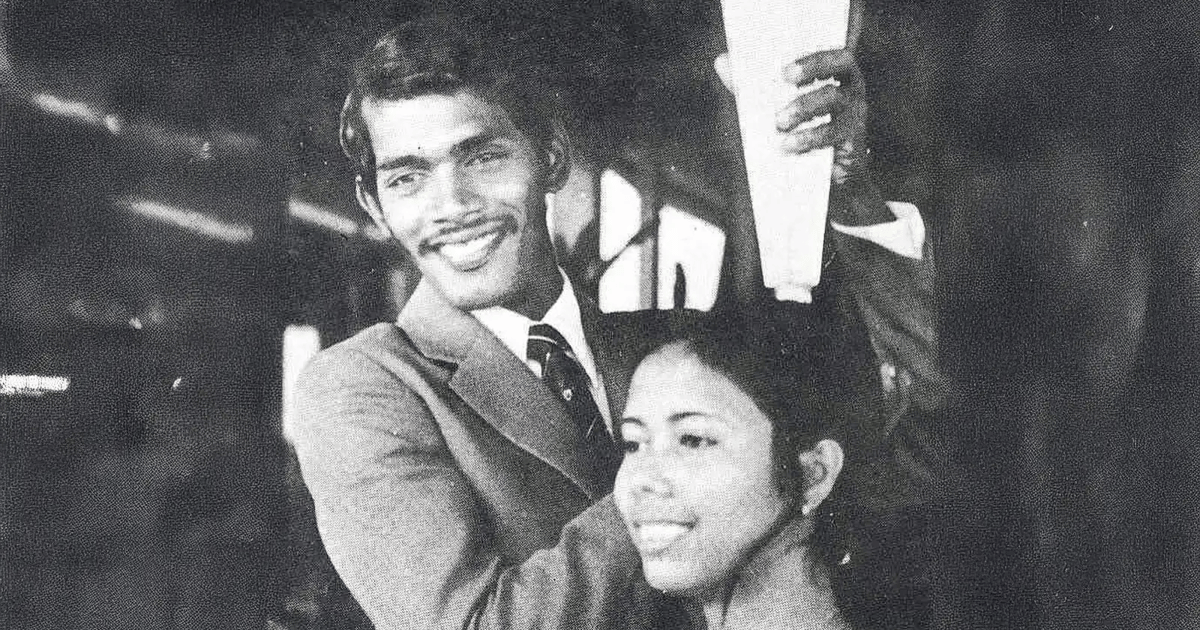
For at least 10 of Malaysia’s greatest athletes, the prize money promised with the nation’s highest sporting honour never came.
Between 1966 and 1982, athletics dominated the nation’s sportsman and sportswoman of the year awards, claiming the crown 13 times.
But every winner — including four who took it twice — never saw the RM5,000 cash prize promised alongside the award.
The Malaysian Amateur Athletics Union (MAAU) had told its champions the money would only be paid upon retirement, to preserve amateur status.

Athletics forms the bulk of those left unpaid, but others in different sports were also affected, though the exact number remains unknown.
Badminton icon Sylvia Ng, twice crowned sportswoman of the year, revealed she too never received the RM5,000.
She said she was never warned by the Badminton Association of Malaysia (BAM) about losing amateur status.
Her questions cut deep: “If the National Sports Council gave the prize money, then what the athletics body told its athletes doesn’t make sense.
“Why award money at all if it meant losing amateur status?”
Then came the sharper barb: “Since we didn’t get it, where did the money go?”
Cycling’s Ng Joo Ngan said he received only RM500, with the Malaysian National Cycling Association keeping the balance.
Hockey’s M Mahendran recalled receiving half, with the rest donated by the Malaysian Hockey Federation to a heroes fund.
The greats left waiting
At the heart of this controversy are names younger Malaysians deserve to know — the bedrock of the nation’s athletics heritage.

Dr Mani Jegathesan, Asia’s fastest man, was Malaysia’s first sportsman of the year in 1966. That same year, Olympian M Rajamani became the inaugural sportswoman, retaining the honour in 1967.
The roll call that followed reads like a who’s who of track and field.
Sprinter Junaidah Aman (1971, 1972), high jumper Gladys Chai (1973), and race walker Khoo Chong Beng (1975) lit up the early years.

Golden girl Marina Chin (1976, 1977), walking ace V Subramaniam (1978), dash king Rabuan Pit (1980, 1982), and all-rounder Zaiton Othman (1982) carried the torch into the next decade.
Nine athletes. Nine stories of sacrifice. Nine promises broken.
It is unclear from which year the cash prize — now RM20,000 — began going directly to athletes themselves.
After 1982, the cash prize rose to RM10,000, with the money going directly to the athletes.
From athletics, the recipients included women’s javelin thrower Noorsham Yoon (1983), distance runner M Ramachandran (1993), and 110m hurdler Nur Herman Majid (1994).
Later came sprinter G Shanti (1998), 400m hurdler Noraseela Mohd Khalid (2000), and sprinter Nazmizan Mohamad (2003).
Carrying the crown
Few carried the crown of national pride as tenderly as Junaidah Aman.
She was still in school uniform when she received her trophy. At the 1971 SEAP Games in Kuala Lumpur, she stunned the region by clocking 56.1 seconds in the 400m, a new Games record.
A year later, she stood at the Olympic starting line in Munich.
Her smooth stride made her the darling of the track, inspiring a generation of girls.
Even when she later served in the police force, the glow of her achievements endured. But it could not mask her disappointment.
Now 70, she confirmed she never received the RM10,000 due for her two wins.
“We were honoured then, but respect must also mean keeping promises, ”she said quietly.
Subramaniam’s frustration
If Junaidah speaks with grace, Subramaniam vents his frustration.
He recalled being told by then MAAU president Ghazali Shafie that the RM5,000 would only be paid upon retirement.
Subramaniam believed it. He retired in 1989 with eight SEA Games gold medals in the 10km and 20km walk.
Decades later, nothing came.
He now survives on a meagre Telekom Malaysia pension of RM430, proof that the silence of a nation can hurt as much as physical exhaustion.
“I am not asking for a handout. I only ask that the promise made to us be honoured,” said the 76-year-old.
“We carried the Malaysian flag when the country needed us. Today, when we need the country, the silence is deafening.”
In September 2024, Subramaniam wrote to then-national athletes welfare foundation (Yakeb) chairman Noorul Ariffin seeking help.
Noorul referred the matter to Malaysian Athletics Federation (MAF) general manager Nurhayati Karim.
The reply was vague. “I was told she would look into it. Months later, nothing,” Subramaniam said. “Another brush-off. Another dead end.”
Khoo was blunt: “Promises should be honoured. Integrity must always be upheld.”
Beyond medals and money
Subramaniam’s record remains formidable. He ruled the SEA Games between 1977 and 1989 and grabbed two Asian track and field bronze medals.
He even qualified for the 1980 Moscow Olympics, only to be sidelined by Malaysia’s boycott.
In 1996, he was named coach of the year for producing Olympian Annatasia Karen Raj, Malaysia’s first female Olympic walker.
But pride in achievement is scarred by betrayal, and the legs that once carried Malaysia’s flag now ache with age.
“The heavier burden is the silence of a nation that has yet to honour its word,” he laments.
It’s all about respect
This fight is no longer about RM5,000. It is about respect, dignity, and trust.
When former pentathlete and 100m hurdler P Savithri cried out about her missing SEAP Games medals, Malaysia Athletics finally responded — 54 years later.
Now, 10 legends — the nine from athletics plus Sylvia — and perhaps more across other sports, wait for their day of reckoning.
The irony is sharp: today, billions are spent on sports infrastructure, foreign coaches, and international events.
Yet the basic duty of honouring promises made to past champions remains unfulfilled.
The question is simple: will Malaysia finally honour its promises, or continue treating its champions as forgotten baggage?
Malaysia’s athletics greats deserved better then. They deserve better still today.






